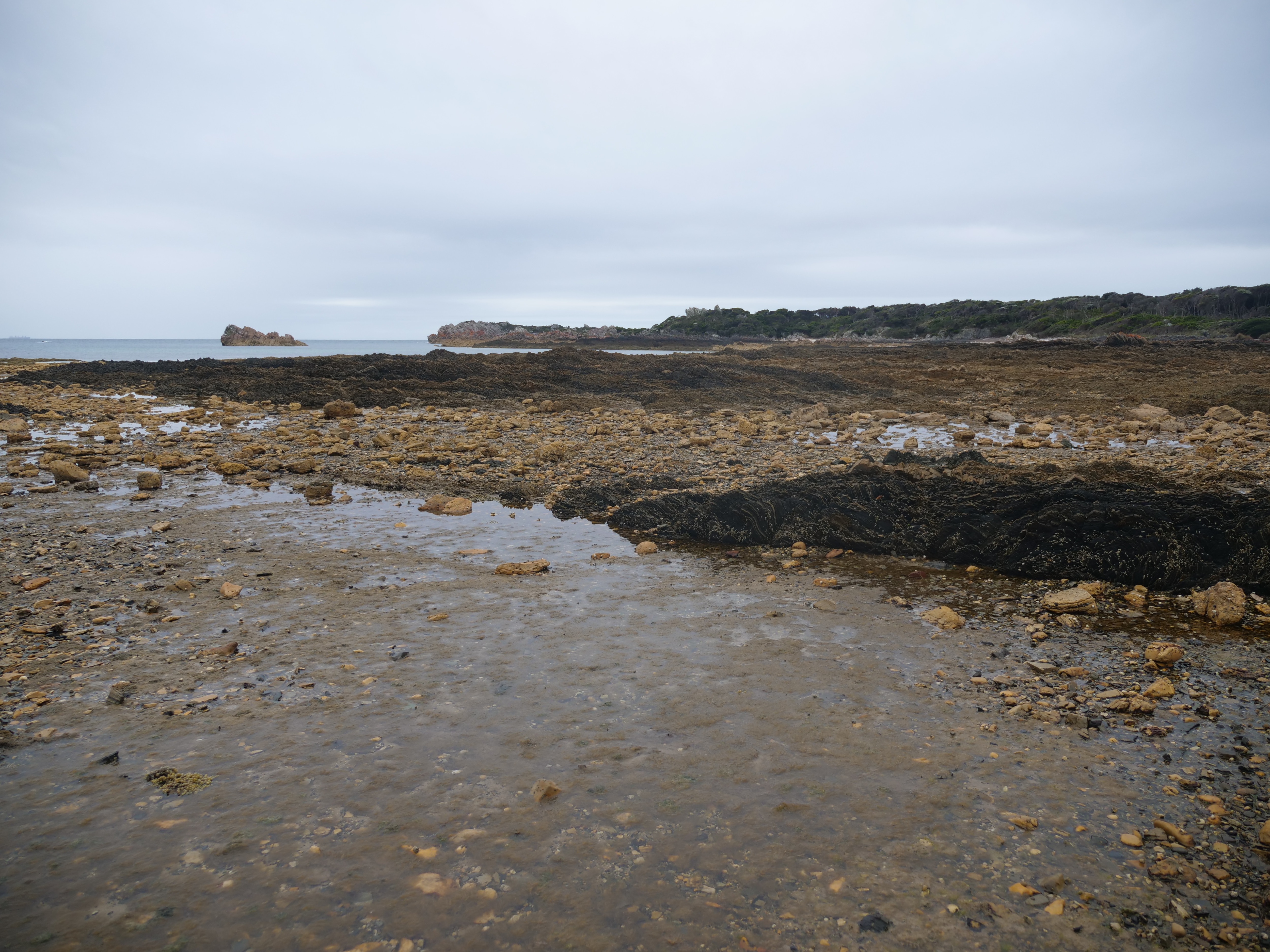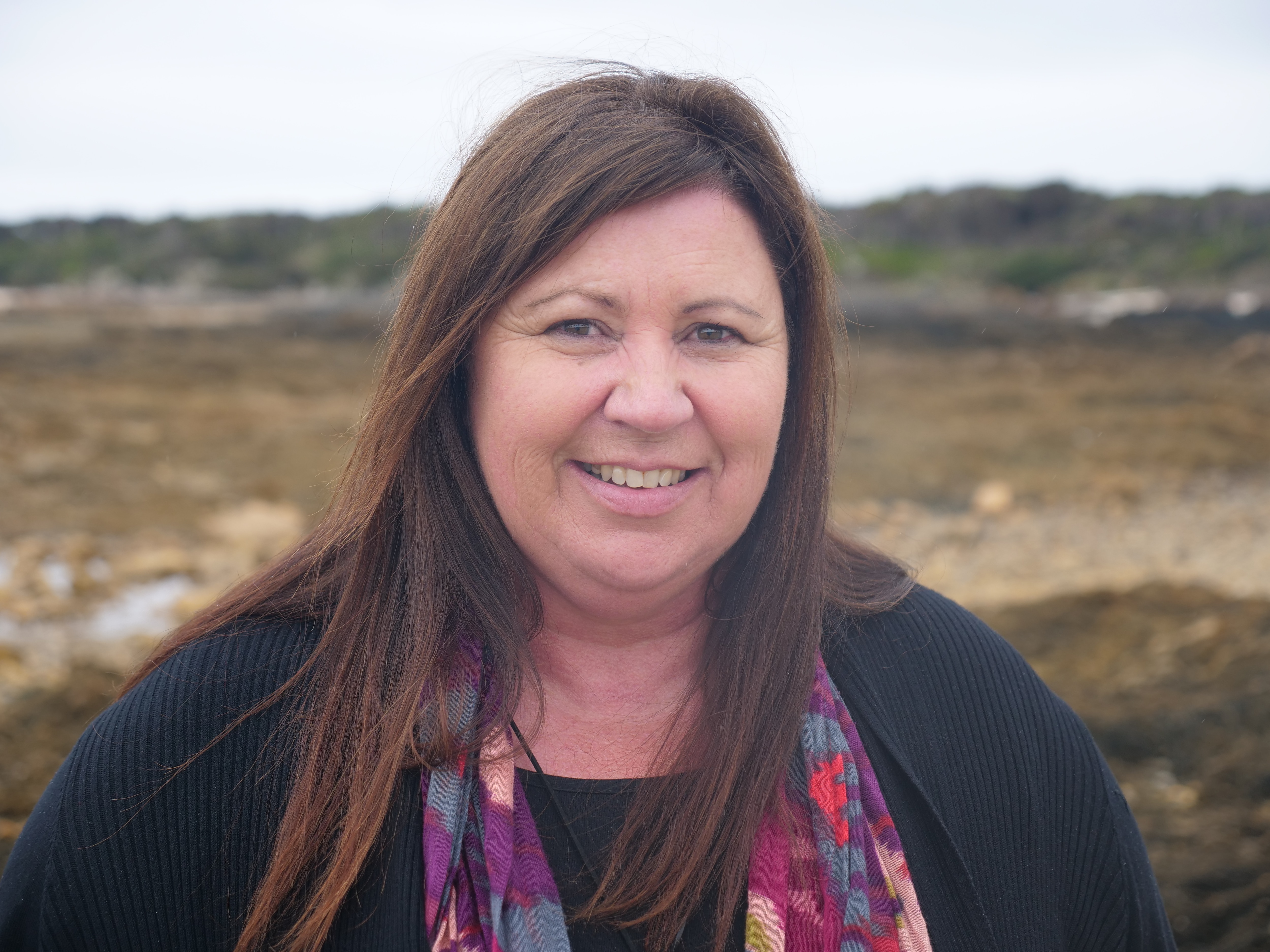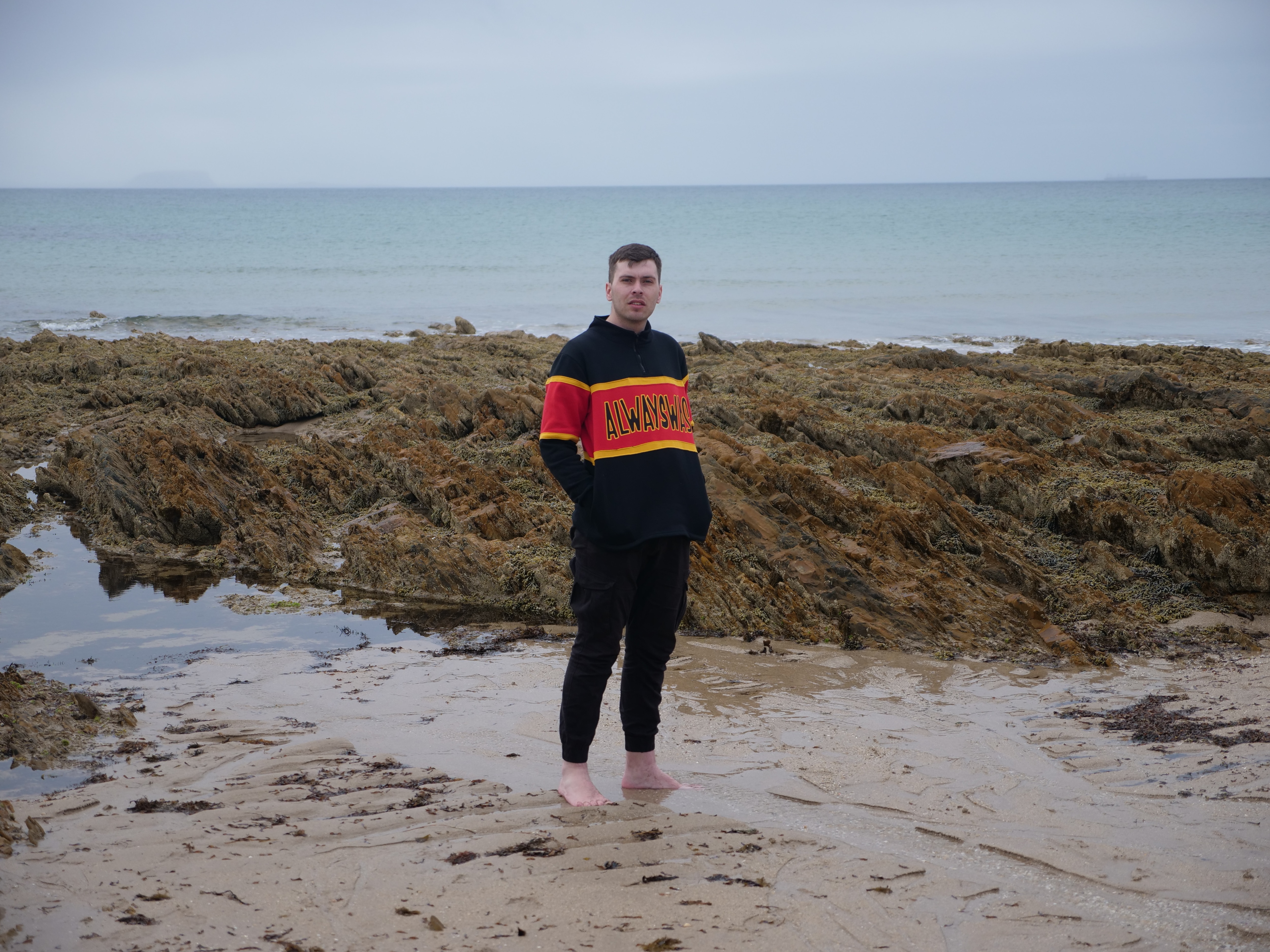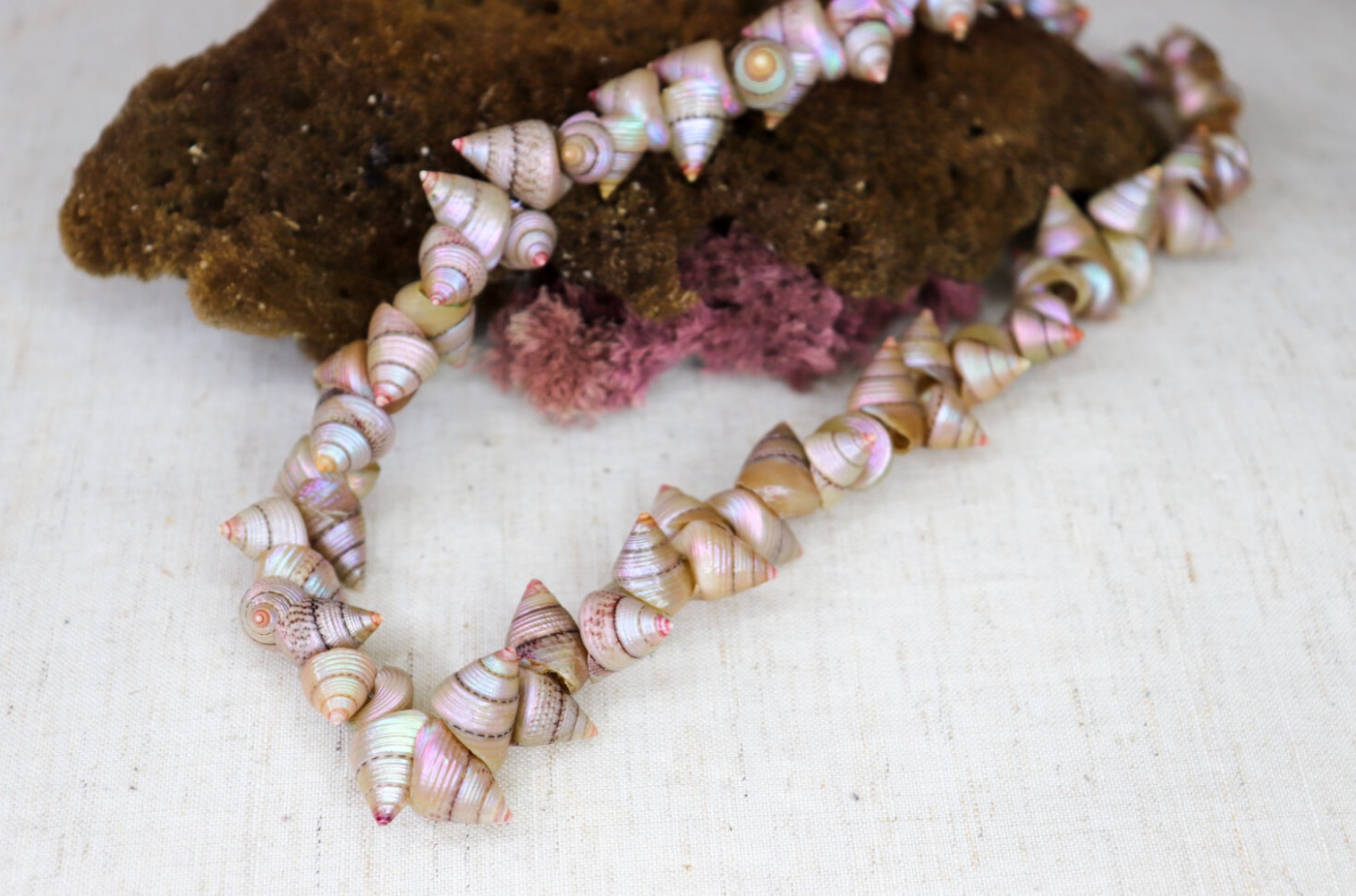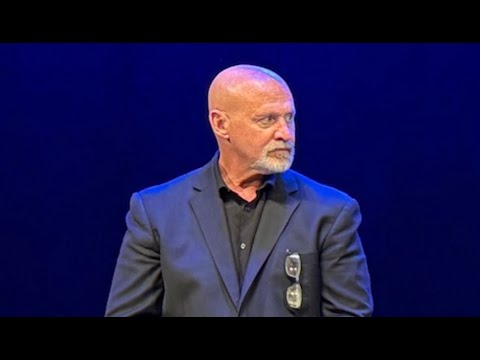Growing up in Launceston, Caleb Nichols-Mansell was taught about his Tasmanian Aboriginal heritage by his family. But when he started school, it was a different story.
“I think the biggest misconception, and the misconception that I come across the most, is that Truganini was the last Tasmanian Aboriginal,” the 24-year-old told SBS News.
Truganini, a Tasmanian Aboriginal woman, was born in the 1800s.
“I, and many other people who went through school in Tasmania, bore witness to our teachers telling us that there were no Tasmanian Aboriginals, that Truganini was the last one, and as someone with a proud, cultural identity as a strong palawa man, that was really confusing and conflicting for me,” Caleb said.
The experience has stayed with him and influenced the creation of his new business Blackspace Creative: a website selling arts and crafts made by Aboriginal and Torres Strait Islander creatives in Tasmania – the first online business to sell only their work.
“It became apparent to me that we have so many incredible, wonderful creatives who are based here in lutruwita [Tasmania in the Tasmanian Aboriginal language palawa kani], but they don’t have an avenue in which to showcase their work and their creativity.”
“Creating Blackspace Creative created the opportunity and gave those artists a space to showcase their work, showcase our cultural traditions, and prove those misconceptions wrong.”
“We are still here, we are still very proud, and we are very strong in our cultural practices and traditions.”
We are still here … and we are very strong in our cultural practices and traditions.
In October 2020, Caleb left his job at the University of Tasmania, where he had worked for several years supporting Aboriginal students, to work on Blackspace Creative full-time.
He also provides support to creators wanting to sell their products on the website. He helps them prepare their product for commercial sale and, if needed, develop a brand identity.
Connecting with country
Caleb is currently based in Burnie, on Tasmania’s north-west coast. He spends a lot of time at pinmatik (Rocky Cape), about a 40-minute drive away. It’s a place where he feels a strong connection to country.
The area contains many significant Tasmanian Aboriginal sites, including caves, rock shelters and artifacts.
Caleb said this year’s NAIDOC Week theme ‘Always Was, Always Will Be’ is a reminder for all Aboriginal and non-Aboriginal people in Australia.
“The country we are on is, and always will be; Aboriginal country,” he said.
“I think it is something that we often forget, even as Aboriginal people, we forget that we are walking on land that our ancestors walked on, and that our old people walked on.
“They taught, they lived, they laughed, they loved on this land, and they died on this land.
“So for me, the theme for this year is so much more than just a saying or a catchphrase. It runs deep, it is a reminder of our deep time connection to country, to our ancestors, and our obligation to both to care for the country, and to prosper.”
‘A powerful statement’
Jacinta Vanderfeen is a pakana women and workplace diversity consultant. She is one of Caleb’s mentors.
A few years ago the two of them travelled to the United States as part of a cultural trip organised by the University of Tasmania. They spent time with people from the Navajo and Hopi tribes in Arizona, learning and sharing cultural traditions.
“We both developed culturally but it brought together the connection we have as people, and I think they’re the type of things that inspire and want you to make change for what you have in your own culture when you come back home,” Jacinta said.
Jacinta is proud of what Caleb is achieving.
“Blackspace Creative is probably something that was always going to be Caleb,” she said.
“Whatever he aspires himself to be and whatever he wants to achieve always goes above and beyond, so the challenges I’ve seen him endure through life, the way that I’ve watched him progress just shows his commitment.
“The way he is being culturally responsible and culturally sensitive to what he is trying to do here … it’s just been such a powerful statement and probably a really proud moment for me too.”
Blackspace Creative sells a mix of traditional Tasmanian Aboriginal cultural items, including shell necklaces and handwoven baskets, as well as contemporary pieces such as earrings, home-decor and watercolour art.
Necklace-making is a significant cultural tradition for Tasmanian Aboriginal women. The knowledge and skills of shell processing and stringing has been passed down through generations and the practice is seen as an opportunity for women of all generations to gather together.
Caleb said Blackspace Creative is a place for the cultural traditions to be celebrated, but also a chance for Tasmanian Aboriginal people to explore their creativity.
“We’re stepping outside of those confines that we’ve often found ourselves in as Aboriginal artists,” he said.
“What Blackspace Creative has done, is open up a space for our creatives to experiment and step outside of those confines, and start to sell and create things that aren’t necessarily stuck within the traditional frameworks.
“I want Blackspace Creative to be a conversation starter, to open dialogue around Aboriginal cultural heritage in Tasmania, our cultural practices, our histories.
“This, for me, is a mechanism to bring the broader mainstream community over to our community and educate them around the issues that affect us, and hopefully bring them on-side.”
The Tasmanian Aboriginal language, palawa kani, uses only lowercase letters.
National NAIDOC Week (8–15 November 2020) celebrates the history, culture and achievements of Aboriginal and Torres Strait Islander peoples.
Join SBS and NITV for a full slate of NAIDOC Week content. For more information about NAIDOC Week or this year’s theme, head to the official NAIDOC Week website.
#NAIDOC2020 #AlwaysWasAlwaysWillBe

